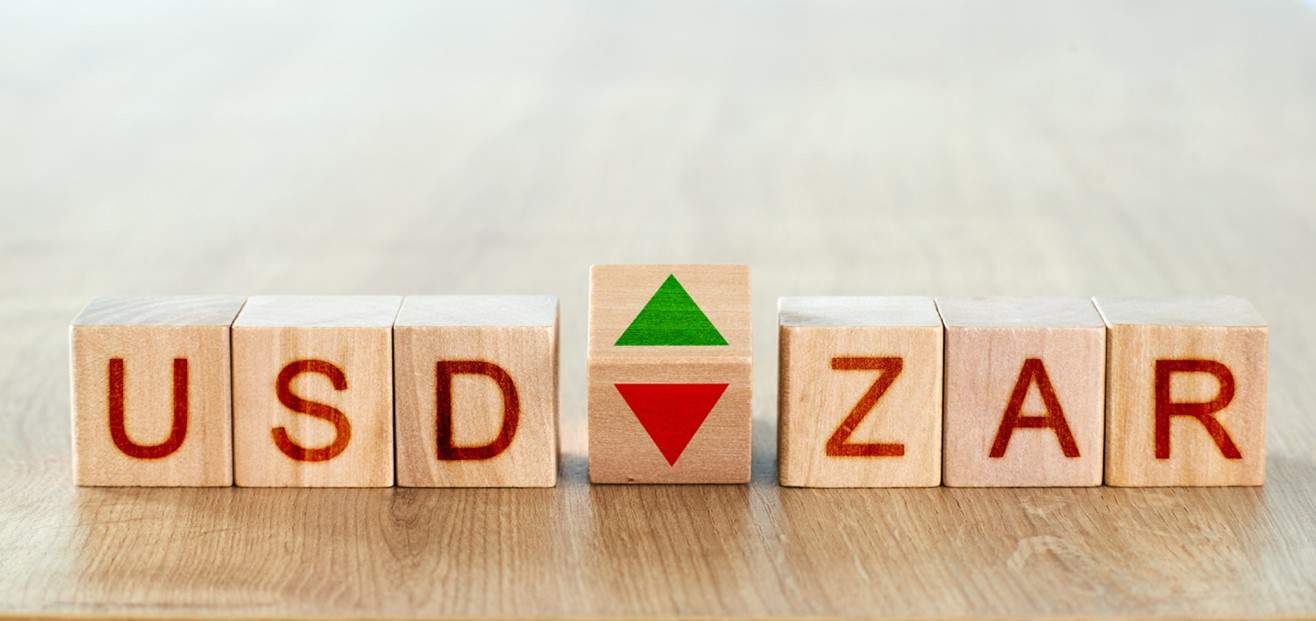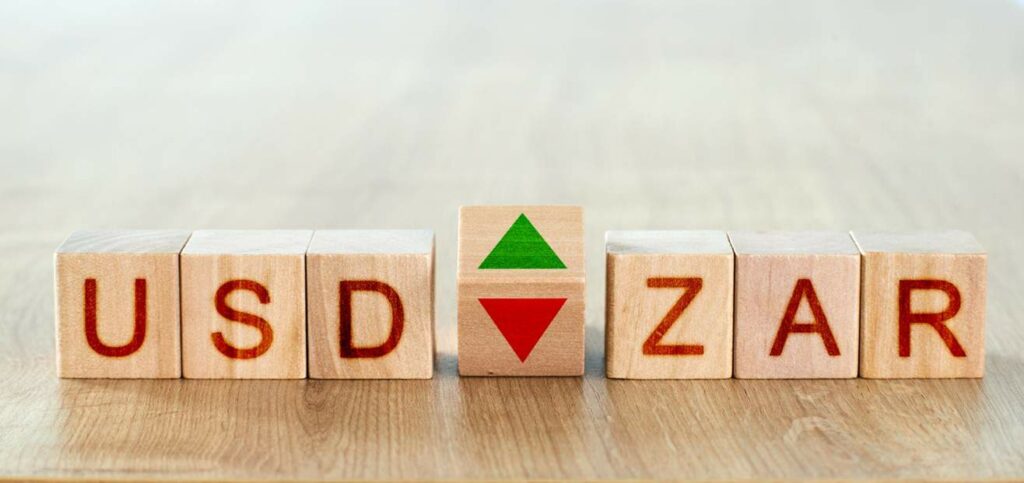
The Republic of South Africa has come a long way since apartheid policies were repealed in 1994, but lingering challenges remain in unemployment, poverty, and inequality. South Africa, however, is a significant leader within the Southern African context and has the second-largest economy on the continent. With more than 60 million inhabitants, its GDP per Capita ranks the highest in the region, but the Covid-19 pandemic hit the nation as hard as many other developing economies.
During the ten years that followed the abolition of apartheid, government officials moved quickly to stabilise public spending, reduce inflation, and attract foreign investment. From 2004, the nation had seen favourable economic growth until the advent of Covid. The country has always been a powerhouse in the mining sector, and tourism has attracted many visitors to the southernmost tip of Africa.
With international trade a major element of South Africa’s success story, it is no wonder that the nation’s currency, the South African Rand (ZAR), has been stable versus the US Dollar leading up to 2020 and the Covid crisis. It had fluctuated at roughly 14.3 ZAR to the USD for a few years but weakened to 19 after Covid hit. It has recovered to a degree, and its current valuation is 15.5.
In 2019, South Africa’s real GDP growth was 0.2% after excluding inflation, but in 2020, the economy contracted by 8.2%. The country and its people have struggled during the pandemic, but gold exports steadied current accounts. Debt has risen, and rating agencies have downgraded credit ratings. However, the financial sector is solid, and observers still conclude that South Africa has the greatest potential for future growth in all of Africa. The African Development Bank Group projects a rebound of 3.0% in the economy in 2021 but a slowing pace after that.
Is there a thriving middle-class in South Africa? Observers have noted that the middle class has been squeezed in recent years but that the top 10% of wage earners in the country constitute an upper middle class, where there is a burgeoning market of investors and traders. By the latest estimate, there are over 200,000 active forex traders in South Africa, representing the highest per capita figure for currency traders anywhere in Africa. Average deposit sizes per month for South African traders are nearly 13,000 ZAR.
With a potential forex client market of this size, the international brokerage community has taken notice. South African forex traders can choose from a broad list of regulated brokers that exceeds 50 or more. We have prepared a list of reputable brokers for your review at the end of this article. Additional details are provided for your learning experience below, including information on the legality of the activity, rules and regulations that pertain to it, regulators of note, and a bit on the taxation of net forex trading gains. In all this, we hope to answer the question posed, “Is forex trading legal in South Africa”?
Is Forex Trading Legal in South Africa?
Retail forex and CFD trading in South Africa is legal, but several rules and regulations must be followed. These laws are there to protect consumers and ensure the strength of the South African Rand, the domestic currency of the country. Due to its long European heritage, South Africa has developed a similar legal infrastructure to prevent money laundering and also to recognise that net gains from forex trading are reportable income for income tax purposes.
Traders are not required to use domestic or regulated forex brokers on foreign soil, but some procedures must be followed when opening and funding foreign financial accounts. Know-Your-Customer (KYC) rules apply, and there are restrictions on how much currency may be moved offshore. Consult with your local banker to understand these rules and learn how to comply with their requirements.
Related Articles
- How to Start CFD Trading in South Africa
- The Best Time to Trade Forex in South Africa
- How to Start Forex Trading in South Africa
- The Best Forex Brokers in South Africa
Laws and Regulation on Forex Trading in South Africa
South Africa’s regulatory regime is patterned after the western developed country model in that there is one agency with oversight over capital markets and a reserve bank that oversees the banking community and sets monetary policy. In South Africa, the Financial Sector Conduct Authority (FSCA) has regulatory oversight for the forex trading arena. The South African Reserve Bank is responsible for monitoring banks for compliance, establishing monetary policy, maintaining stable international exchange rates for the ZAR, and controlling the outflow of cash from the country.
Funding a foreign account for trading purposes had been a problem in the past, but it has become easier now, especially for retail forex traders when balances may range from as little as 7,500 ZAR to as much as 150,000 ZAR. Problems still arise if more than one million Rand are to be moved. A simple banking form is required for this level of transfer, but transfers of 10 million ZAR and up require much more documentation and government approval.
There will be no legal issues related to forex trading if the trader follows Anti-Money Laundering statutes and reports net income on his tax return. The FSCA licenses local brokers, but it does not require that a trader use one of these. South African citizens may trade with any forex broker that will accept them as clients, whether regulated or unregulated.
In October 2020, the FSCA stated that forex trading is legal as long as the trader deals in financial derivatives from an authorised dealer and does not speculate against the Rand. One other rule is that a citizen of South Africa cannot buy foreign currency directly through an online broker. To accept the delivery of foreign currency, the transaction must be with a licensed bank or foreign exchange currency dealer.
What Taxes Apply to Forex Trading in South Africa?
Taxing regimes vary worldwide, but in South Africa, the South African Revenue Service (SARS) requires that all net gains from forex trading be reported, even if the gains have occurred in offshore brokerage accounts. You may net your related expenses against this income, but the income classification can become complicated from that point. You will want to keep track of banking charges, software expenses, training courses, computers, and other direct expenses.
If you trade in futures or options, the rules are complicated. Traditional forex trading with a broker or with CFDs is more straightforward. Capital gain rules may come into play with the former trading method, whereas the conventional approach is ordinary income. There are also tax brackets based on age and amounts such that if your total income does not exceed certain thresholds, you will pay no tax. Before trading, it would be wise to consult a tax advisor to determine how best to proceed and limit any tax liability exposures.
How to trade forex legally in South Africa?
Within the established legal framework in South Africa, a trader can easily comply with the rules and begin trading forex in haste. After selecting a reputable and regulated forex broker, the next step is to fund an approved account. Each broker will have these steps delineated on its website. Many brokers will allow you to set up an account and access a free demo system before depositing any funds.
Know-Your-Customer rules will necessitate the exchange of private identity information, a requirement that all brokers must follow across the globe. Approval will typically come quickly, and as long as your funding is significantly below the one million Rand threshold, there should be no issue with your local bank in moving the funds to your brokerage account. Trading popular currency pairs like the “EUR/USD” or the “GBP/USD” will be issue-free but remember that you cannot go short on the ZAR. Speculating against the Rand is forbidden.
List of Best Brokers in South Africa for Forex Trading
Over 50 regulated forex brokers seek your patronage both within and outside the Republic of South Africa. It is highly recommended that you choose a regulated broker for the safety, security, and trust that comes with strict regulatory oversight. We have already reviewed many of these reputable and reliable candidates for you and prepared the list below for your consideration:
| Broker | Features | Regulator | Platforms | Next Step | |
|---|---|---|---|---|---|
 Between 74-89% of CFD traders lose
Founded: 2010 Between 74-89% of CFD traders lose
Founded: 2010Between 74-89 % of retail investor accounts lose money when trading CFDs |
|
ASIC, FCA | MetaTrader 4, MetaTrader 5, cTrader | ||
 Your capital is at risk
Founded: 2006 Your capital is at risk
Founded: 2006Europe* CFDs ar... |
|
ASIC, FSA, FSB, MiFID | MetaTrader4, Sirix, AvaOptions, AvaTrader, Mirror Trader | ||
 Your capital is at risk
Founded: 2014 Your capital is at risk
Founded: 2014 |
|
FSPR | MT4 | ||
 Your capital is at risk
Founded: 2009, 2015, 2017 Your capital is at risk
Founded: 2009, 2015, 2017 |
|
ASIC, CySEC, IFSC | MT4 Terminal, MT4 for Mac, Web Trader, iPhone/iPad Trader, Droid Trader, Mobile Trader, MT5 | ||
Conclusion
Since the nineties, the Republic of South Africa has made significant progress, but the transition to today’s post-Covid environment has been difficult. Financial infrastructure remains sound and in line with European standards. South Africa continues to have the potential for great strides in the future and has an upper-middle-class primed for investment and trading opportunities.
Reputable international forex brokers are numerous, and citizens of South Africa are free to trade with any broker that will accept them as a client. There are more than 200,000 active forex traders in the country, and the FSCA is a respected regulator in the field. However, the potential for fraud still exists, especially when using an unregulated broker from a distant foreign locale. The list presented above is for your benefit when choosing a financial partner to be entrusted with your trading deposits and to provide access to the forex market. Choose wisely and enjoy trading.
Forextraders' Broker of the Month
BlackBull Markets is a reliable and well-respected trading platform that provides its customers with high-quality access to a wide range of asset groups. The broker is headquartered in New Zealand which explains why it has flown under the radar for a few years but it is a great broker that is now building a global following. The BlackBull Markets site is intuitive and easy to use, making it an ideal choice for beginners.

